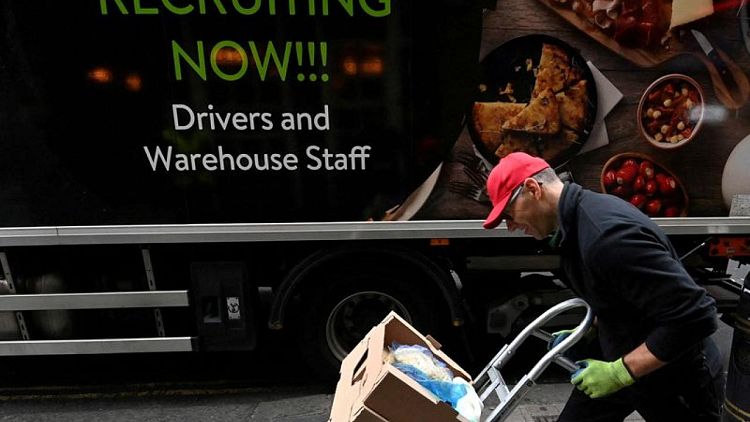By William Schomberg and Andy Bruce
LONDON -British employers hired a record number of staff in November, adding to signs that the labour market withstood the end of the government's furlough scheme and underscoring the Bank of England's dilemma as it meets on interest rates this week.
Tax office data showed 257,000 people joined company payrolls last month, the most since records began in 2014.
The BoE, under pressure to address fast-rising inflation, wants to be sure that the expiry of the furlough scheme at the end of September did not cause a jump in unemployment before any decision to raise rates for the first time since the pandemic.
But the fast spread of the Omicron coronavirus variant has raised fears of a new economic slowdown and prompted investors to bet against a rate hike by the BoE as soon as Thursday, after its December Monetary Policy Committee meeting.
"The combination of a tight labour market and low unemployment evident in today's data could on their own be sufficient to merit a rate rise," KPMG UK's Chief Economist Yael Selfin said.
"Nonetheless, with the emergence of the Omicron variant over the recent weeks, we now expect the MPC to unanimously hold off raising rates until next year."
The ONS's director of economic statistics, Darren Morgan, cautioned that the payrolls figures could include people recently made redundant but still working out their notice and the data can be volatile.
October's increase was slashed to 74,000 from an originally reported 160,000.
WAGE GROWTH SLOWS AS INFLATION GROWS
While the overall picture from the data was one of strong jobs growth and a record number of vacancies, employers are worried that any further restrictions to slow the spread of COVID-19 could hit the economy's recovery from its 2020 slump.
"The economy should remain as open as is feasibly safe to do so in the coming weeks," Matthew Percival, director of employment at the Confederation of British Industry, said.
Official data showed the unemployment rate fell to 4.2% in the three months to October, as expected by economists polled by Reuters and down from 4.3% in the three months to September.
Employment rose by 149,000 in the August-October period, less than a predicted increase of 228,000 in the Reuters poll, while the number of unemployed fell by 127,000.
The ONS said average weekly earnings were 4.9% higher than in the same three months of 2020, the smallest annual increase since March.
Excluding bonuses, earnings were 4.3% higher than a year earlier, the smallest rise since the three months to February.
Adjusted for inflation, which is expected to hit almost 5% in data due to be released on Wednesday, total pay growth was the weakest since September last year, representing another potential drag on the economy's recovery.
The ONS said it was no longer estimating underlying pay growth excluding the impact of the furlough scheme and other pandemic-related factors which have distorted the data.
Job vacancies hit an all-time high of 1.219 million in the three months to November, although the pace of growth in new openings continued to slow. In November alone, vacancies edged down for the first time since February when Britain was in a tight lockdown.
Much of the recent growth in employment was among part-time workers, the ONS said.
